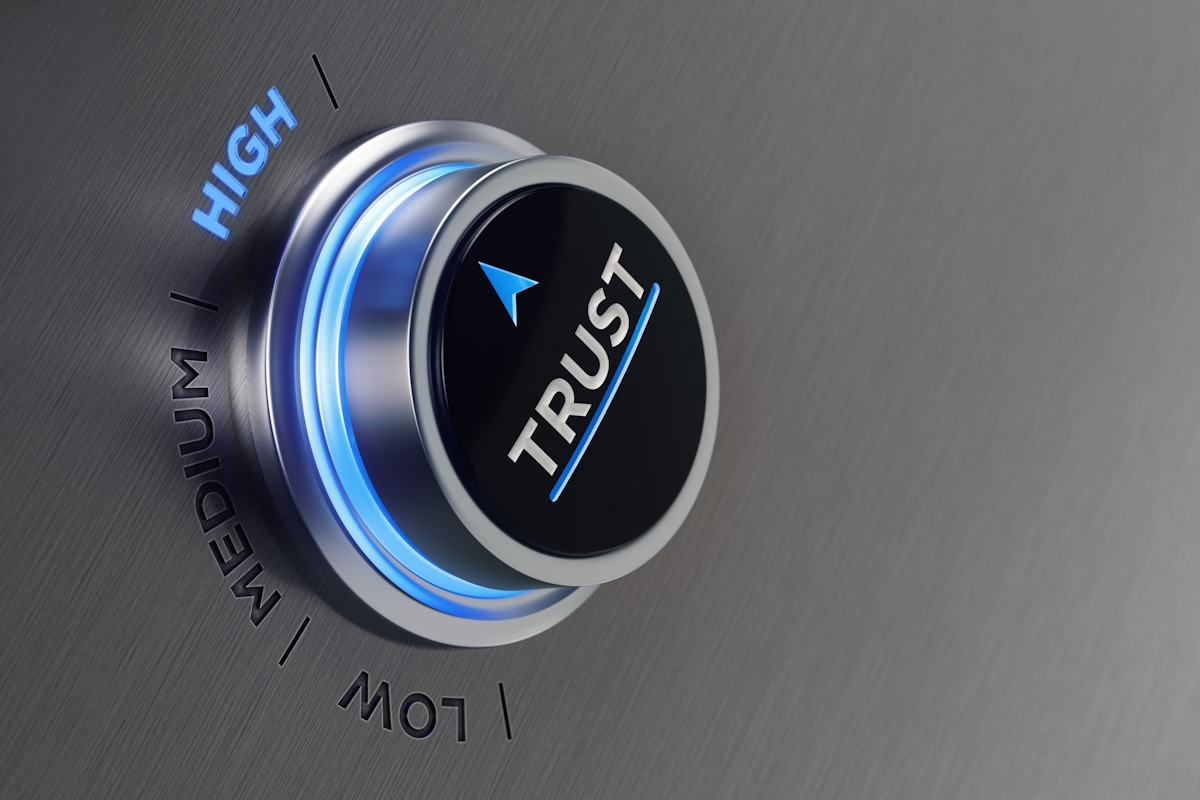Rebuilding trust in the digital economy

Raffaele Apostoliti at B2B Stars explains how businesses can rebuild trust, foster transparency, and use community-driven platforms to succeed
As businesses navigate today’s digital economy, establishing trust online has become increasingly challenging. The rise of misinformation, fake profiles, and poor verification processes is eroding confidence, making it difficult for companies to make informed decisions about partnerships and collaborations.
According to recent research from B2B Stars, one-in-three (33%) UK businesses find it hard to trust the people and companies they encounter online, while 29% struggle to distinguish between fake and genuine profiles on social media platforms and other online spaces.
This erosion of trust isn’t just an inconvenience - it’s costing businesses valuable time, resources, and money. Small and medium-sized businesses (SMBs) are particularly vulnerable. Nearly half of UK SMBs report being directly impacted by misinformation or fake reviews, leading to an average loss of £93,000 per year due to unreliable information, misleading claims, and the resultant poor decision-making.
However, larger organisations are not immune to these risks either. Businesses across the board are grappling with how to navigate an increasingly complex digital landscape, where separating trustworthy sources from unreliable ones is becoming more difficult by the day.
The high cost of mistrust
Trust is the foundation of all successful partnerships, and in the digital economy, the widespread erosion of trust is threatening the long-term success of many businesses. The digital environment has transformed how businesses connect, collaborate, and grow, providing unprecedented opportunities.
However, the same digital platforms that open doors to new markets and partnerships have also become breeding grounds for fake reviews, false claims, and unverified profiles, all of which are contributing to significant financial losses and limiting opportunities for growth.
When trust is compromised, businesses find themselves unable to make confident, informed decisions. This slows down operations, damages reputations, and ultimately results in lost revenue. While the financial impact of mistrust is clear, the broader economic effects are equally concerning. As companies face growing uncertainty about the credibility of their online interactions, the overall competitiveness of entire industries is reduced.
What’s more, the ripple effects of mistrust go beyond individual business outcomes. As mistrust becomes more prevalent, entire sectors may become less willing to take risks, form new partnerships, or invest in innovation - all of which are crucial for economic vitality.
Tackling the trust deficit
To combat these challenges, businesses must take proactive steps to rebuild trust and ensure transparency in their online interactions. One key strategy is maintaining an accurate and well-monitored online presence. With nearly half of SMBs having already been hit by fake reviews, businesses need to be vigilant about monitoring their reputation.
Regularly checking for fake or misleading reviews and addressing them promptly can help mitigate the damage caused by misinformation and prevent further erosion of trust.
Equally important is the need to counter misinformation with accurate and reliable content. Ensuring that business profiles, websites, and social media channels are regularly updated with correct information can prevent the spread of falsehoods. Actively engaging with customers through positive testimonials and case studies can help dilute the impact of fake reviews and misleading claims.
In addition, businesses should leverage customer relationships to bolster trust. Encouraging satisfied clients to leave authentic reviews not only enhances the company’s credibility but also offsets the negative effects of fake or malicious content. A business’ ability to actively manage and curate its online presence is critical in building trust and ensuring long-term success in a competitive marketplace.
Trust and long-term growth
For businesses of all sizes, the ability to build trust online is not just a defensive measure - it’s a key driver of sustainable growth. Companies that can establish themselves as trustworthy partners will be better positioned to seize new opportunities, expand into new markets, and foster long-term relationships.
Startups and smaller companies, in particular, stand to benefit from improved trust as they look to scale. However, larger businesses also need to ensure they can navigate an increasingly complex digital environment where trust is harder to come by.
While fake reviews and misinformation are widespread, the solution lies in creating more transparent and reliable online ecosystems. By adopting a proactive approach to managing their online reputation, businesses can avoid the pitfalls of unreliable information and focus on driving growth through trusted, verifiable partnerships.
Addressing the trust deficit is also an opportunity to redefine how businesses build and maintain relationships. Rather than relying solely on traditional trust-building methods, businesses can adopt new approaches that emphasise transparency and collaboration, harnessing the power of customer feedback, data-driven insights, and community-driven platforms to enhance their credibility.
Creating a trust-based digital economy
The solution to the trust deficit lies in creating a more transparent and reliable online ecosystem. Businesses that prioritise active reputation management and transparent communication are better positioned to avoid the pitfalls of misinformation and focus on driving growth through verifiable partnerships.
Community-driven platforms that offer deeper insights into business credibility are emerging as valuable tools in this effort, allowing businesses to assess partners more comprehensively through peer reviews, financial assessments, and industry recognition.
Such platforms enable companies to take a more data-driven approach to building trust, using technology and analytics to validate the legitimacy of potential partners. By implementing these strategies, businesses can not only rebuild trust but also position themselves for sustained growth in the future.
With online interactions now the norm, trust has become a crucial commodity. Without it, businesses face unnecessary risks that can hinder both their short-term operations and long-term growth. Prioritising transparency, engaging in active reputation management, and fostering relationships based on credible and reliable information are the keys to overcoming today’s trust deficit.
Businesses that take a proactive approach to rebuilding trust will not only survive in this digital landscape but will thrive as they build stronger, more resilient connections.
Raffaele Apostoliti is the CEO of B2B Stars
Main image courtesy of iStockPhoto.com and MicroStockHub

Business Reporter Team
Most Viewed
Winston House, 3rd Floor, Units 306-309, 2-4 Dollis Park, London, N3 1HF
23-29 Hendon Lane, London, N3 1RT
020 8349 4363
© 2024, Lyonsdown Limited. Business Reporter® is a registered trademark of Lyonsdown Ltd. VAT registration number: 830519543





